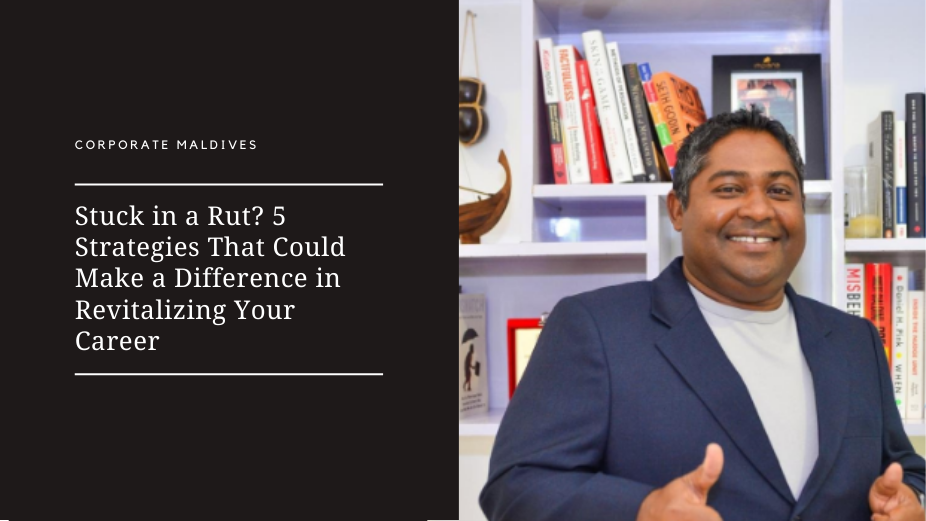
A plateau is a state of little or no change following a period of activity or progress. Most of us feel this sometime in our lives with different aspects of our lives. Like changing a habit, losing weight or saving money. Some of us have felt this with our careers; we may progress very well for a few years, get to middle management and get stuck there. I know a lot of middle managers, especially heads of department in hospitality who may be going through this. I like to think this as the ‘valley of death’ in the hospitality career. This is what people mean when they say they are ‘stuck in a rut’.
Then there is the other side: The Peter Principle, a term coined by Laurence J. Peter some decades ago to mean that every employee will rise in the hierarchy through promotion until they reach a level of respective incompetence. None of us wants to become that Peter. How do we take more control of our own progress in our careers? The following are 5 strategies that I think will have some impact for some stuck in plateaus.
Reflect on your situation
Take a long, hard look at where you are. How long have you been there, and do you still need to be there? Do you feel stuck in a plateau and does life feel like you are on a treadmill? This is about taking stock and deciding if it is time to move, weel, force a move. You can decide if you deserve a promotion based on your level of competence and mastery in your area of expertise. We all have the tendency to rate ourselves higher on many things than we really are, including how talented and skilful we are in something. The best idea is to speak to a neutral person who can give honest feedback.
Evaluate your personal brand and rebrand if necessary
Again, this is about asking yourself a set of questions that specifically relates to how other people see you. If you have a special skill, a unique competency, those should be emphasized if you are looking for advancement in the career ladder. Rebranding is about building, maintaining and reclaiming your reputation. This is about making you more visible to your potential sponsors (a sponsor is someone who can help you within an organization) and increasing your chances of being promoted or hired. Sometimes we do a lot of intellectual work but do not talk about them publicly. What you do needs to be celebrated, at least by yourself for it to be as fulfilling as possible. A personal brand is also about highlighting your salient competencies. Sometimes those may be unique and in short supply where sharing it publicly will give you a stronger edge over other candidates when applying for a new job.
Your Social Media presence, especially your LinkedIn profile is important for your personal brand. Everyone, including the intelligence community who use OSINT (open-source intelligence), will look at your digital footprint to form an impression of you. Make sure you publish and share content that you are comfortable showing to and discussing with your boss/employer.
Start teaching others
This has proven to be a life-changer for me. Teaching should not always be seen in the conventional sense. If you are an HoD, this can be quite easy for you and you may be doing it already. Try teaching things that are out of your domain. Learning about a subject or a speciality that is outside your knowledge base will always challenge you and enrich you. Teaching can be extremely invigorating to your spirit and will motivate you to keep going and to do better. If you are in F&B, start basic F&B for non-F&B staff and there is almost no area of speciality that you cannot start a short course on.
Start contributing to management discussion
This is about getting noticed. If you are already doing it, maybe you need to look at how you are doing it. Are your comments and contributions to discussions aimed at becoming the smartest person in the room? This could be a counterintuitive strategy, instead, try to be the wisest one in the room. You can do so by paying more attention and adopting a more methodical and analytical thought process. Think of the different scenarios and look at the big picture. Start thinking in systems and this will help you notice things that the smartest do not. Generally, the seemingly smartest, those who answer the quickest, are not detail-oriented. They only see one aspect and the GM will quickly shoot them down.
Move after 2 years
Corporates do not care about individuals despite what is written in company and brand values. For them, it is ‘people’, the collective that they are concerned about. Someone who is sticking with one employer in the same position, doing the same thing for more than 3-4 years is not doing any favours to anyone: neither to self nor to the company. We tend to lose our creative frame of mind after a few years in the same position and for me, 2 years is ideal if you are mid-career or just getting started in management. A lot of us undervalue the importance of moving horizontally in the industry. If you are currently in a smaller operation, try a larger operation. If you have not had the pre-opening experience, try joining one.
Like many other things in life, there is no one size fits all magic formula for career advancement. What worked for me may not necessarily work for you, but I am hoping that some of this will help you with sorting out your career and deciding what needs to be done next.
About the writer: Hassan Saeed is a hotelier with over 28 years of experience in Maldives tourism and resort operations. He is passionate about behavioural economics and how concepts like ‘Nudge’ can be applied in service settings. Hassan identifies himself as a lifelong learner. He currently holds the position of Resort Manager at Dhigali Maldives.











